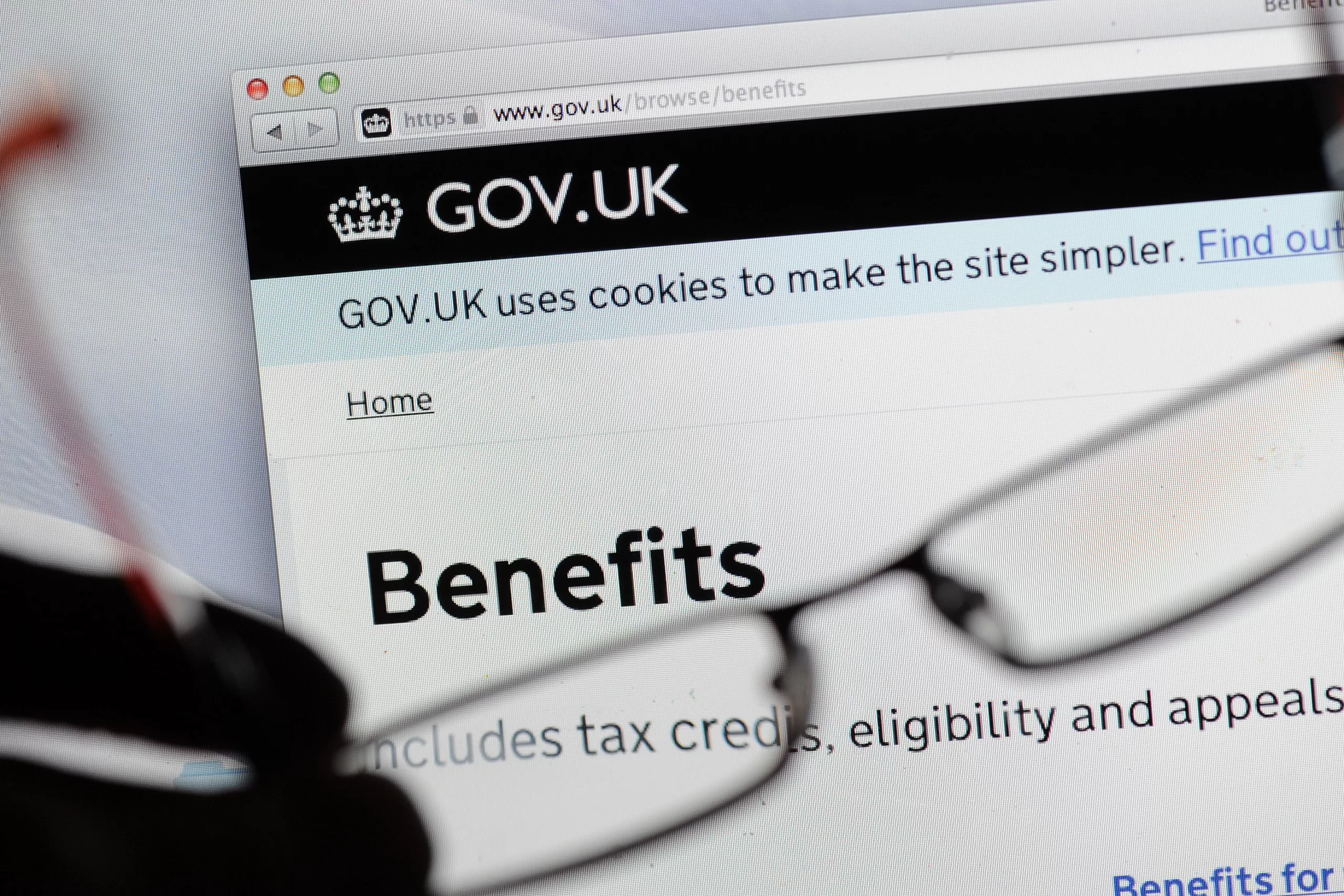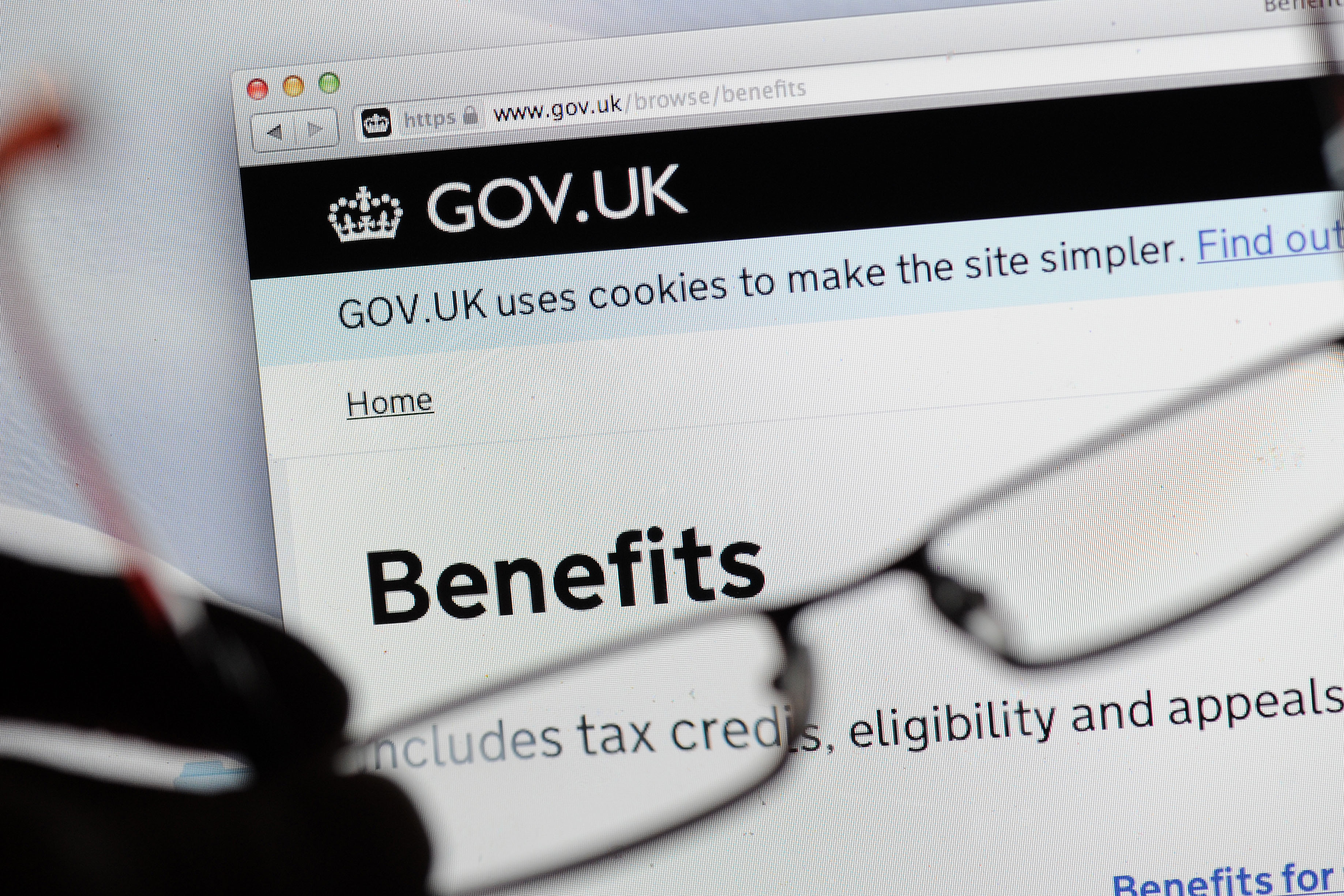The Government is hiking benefit rates by 6.7% in line with the CPI measure of inflation from September 2023.
Millions on benefits such as Universal Credit, Housing Benefit and Pension Credit will start receiving more money.
Meanwhile those on the state pension will get a pay rise of 8.5% thanks to the Government’s triple lock pledge.
Bear in mind, the amounts we’ve included below might not match what your payments rise by as it depends on your personal circumstances.
Also remember your payments won’t necessarily go up on April 1, but when you usually get paid.
So if you are expecting your benefit payment on April 5, you will get the pay rise then.
Universal Credit
Standard allowance (per month)
- For those single and aged under 25, the standard allowance will rise from £292.11 to £311.68
- For those single and aged 25 or over, the standard allowance will rise from £368.74 to £393.45
- For joint claimants both under 25, the standard allowance will rise from £458.51 to £489.23
- For joint claimants where one or both are 25 or over, the standard allowance will rise from £578.82 to £617.60
Extra amounts for children
- For those with a first child born before April 6, 2017, the extra amount will go up from £315 to £333.33
- For those with a child born on or after April 6, 2017 or second child and subsequent child, the extra amount will go up from £269.58 to £287.92
- For those with a disabled child, the lower rate addition payment will rise from £146.31 to £156.11 and the higher rate from £456.89 to £487.58
Extra amounts for limited capability for work
- For those deemed to have limited capability for work, the extra amount will go up from £146.31 to £156.11
- For those deemed to have limited capability for work or work-related activity, the extra amount will go up from £390.06 to £416.19
Extra amounts for being a carer
Universal Credit claimants can get an additional amount if caring for a severely disabled person for at least 35 hours a week.
The amount you get a month will rise from £185.86 to £198.31
The work allowance rates will also rise in April.
Increased work allowance
- The higher work allowance (no housing amount) for someone claiming Universal Credit with one or more dependent children or limited capability for work will rise from £631 to £673
- The lower work allowance for someone claiming Universal Credit with one or more dependent children or limited capability for work will rise from £379 to £404
State pension
The full rate of the new state pension will go up from £203.85 a week to £221.20.
For the basic part of the old state pension, the rate will increase from £156.20 to £169.50.
How much pension you get will depend on your entitlement.
Housing benefit
Single person
- Aged under 25: Increases from £67.20 to £71.70
- Any age and on main phase ESA: Increases from £84.80 to £90.50
- Aged between 25 and state pension credit age: Increases from £84.80 to £90.50
- Has reached pension age: Increases from £217 to £235.20
Lone parent
- Aged under 18: Increases from £67.20 to £71.70
- Any age and on main phase ESA: Increases from £84.80 to £90.50
- Aged between 18 and state pension credit age: Increases from £84.80 to £90.50
- Has reached state pension age: Increases from £217 to £235.20
Couple
- Both aged under 18: Increases from £101.50 to £108.30
- One or both aged between 18 and state pension credit age: Increases from £133.30 to £142.25
- Any age and on main phase ESA: Increases from £133.30 to £142.25
- One or both have reached pension age: Increases from £324.70 to £352
Other
- Dependent child/young person aged under 20: Increased from £77.78 to £83.24
Personal Independence Payment
Rates for Personal Independence Payments (PIP) will rise.
PIP covers the extra cost of living for those suffering from illnesses or disabilities.
Payments for the daily living component will go up from £101.75 to £108.55 for enhanced and from £68.10 to £72.65 for standard.
The mobility component will rise from £71 to £75.75 for enhanced, and from £26.90 to £28.70 for standard.
Employment Support Allowance
Employment Support Allowance (ESA) tops up workers’ pay if they’re on a low income.
Rates will change in April for those who are single and:
- Under 25-years-old, from £67.20 to £71.70
- Age 25 and older, from £84.80 to £90.50
- Lone parent under 18, from £67.20 to £71.70
- Lone parent 18 or over, from £84.80 to £90.50
Those in a couple will also see their rates rise:
- Both under 18-years-old, from £67.20 to £71.70
- Both under 18 years old with a child, from £101.50 to £108.30
- Both over 18, from £133.30 to £142.25
- Under 25, partner under 18, from £67.20 to £71.70
- Claimant 25 or over, partner under 18, from £84.80 to £90.50
There are also further rates for those with disabilities or caring responsibilities. Check out the Government’s website for more details.
Attendance Allowance
Attendance Allowance helps with extra costs if you have a disability severe enough that you need someone to help look after you.
It’s paid at two different rates and how much you get depends on the level of care you need.
The higher rate will rise from £101.75 to £108.55 in April, while the lower rate will also go up from £68.10 to £72.65.
Pension Credit
Retirees on a low income can get it topped up via Pension Credit.
Pension Credit will go up from £201.05 a week to £218.15, or £306.85 to £332.95 for couples.
If your income is lower than this, you should be eligible for the benefit.
You could get the “Savings Credit” part of Pension Credit if both of the following apply:
- You reached state pension age before April 6, 2016
- You saved some money for retirement, for example, a personal or workplace pension
This part of Pension Credit will increase from £15.94 a week to £17.01 or for couples, from £17.84 to £19.04.
There are also top-up amounts, for instance, if you’re caring for someone else or are disabled.
You can find out more about Pension Credit including how to apply in our guide.
Disability Living Allowance
The Disability Living Allowance is being replaced by Personal Independence Payment (PIP) for disabled people.
You can only apply for DLA if you’re under 16. Older people whose DLA claim hasn’t come to an end may see payments go up.
- Highest amount will increase from £101.75 to £108.55
- Middle amount will increase from £68.10 to £72.65
- Lowest amount will increase from £26.90 to £28.70
And for the mobility component:
- Higher amount will increase from £71.00 to £75.75
- Lower amount will increase from £26.90 to £28.70
Jobseekers Allowance
Jobseekers Allowance (JSA) supports those who are out of work while they look for a job.
It is being replaced by Universal Credit but if you are still claiming it you’ll see payments go up.
For under 25-year-olds, contribution-based and income-based payments will go up from £67.20 a week to £71.70, and from £84.80 to £77.00 a week for those who are older.
There are also further rates for couples, those with children, disabilities or caring responsibilities.
Income support
Income support is extra money for people who don’t have enough to live on.
It’s a means-tested benefit which means your income, savings and any sources of cash are taken into consideration when deciding how much you’ll receive.
How much you get depends on your circumstances, however if you’re single and aged between 16 and 24, your weekly payments start from £67.20.
It will go up to £71.70 a week – a £4 a week pay rise, from April 2024.
Carer’s Allowance
You can claim Carer’s Allowance if you care for someone at least 35 hours a week and they get certain benefits.
The rate will go up from £76.75 to £81.90 a week.
Maternity, paternity, adoption and shared parental pay
Pay for mums and dads taking time away for kids, including those adopting, has already gone up.
The statutory rates will increase from the start of April from £172.48 to £184.03, for maternity, adoption, paternity and shared parental pay.
Parental bereavement pay also increased by the same amounts.
Maternity allowance
New mums who don’t qualify for standard maternity pay could still get a payment adding up to thousands of pounds from Maternity Allowance.
It will also rise from £172.48 a week to £184.03 from April 2024.
Statutory sick pay
You might be able to get statutory sick pay (SSP) if you’re off work, and even if you aren’t sick yourself.
SSP is currently worth £109.40 per week and it is paid by your employer for up to 28 weeks.
It will increase in April to £116.75.
How to check if you’re eligible for benefits
Billions of pounds in benefits is going unclaimed each year, according to the latest data from analytics company Policy in Practice.
That includes £7.57billion in Universal Credit and £2.87billion in Council Tax Support.
It’s easy to check if you might be eligible for benefits through a number of free online calculators:
Some benefits open up other perks as well.
Households on Pension Credit can claim a free TV licence when they turn 75, as well as a discount on their Council Tax.
Meanwhile, Universal Credit claimants can get help covering the cost of childcare and energy bills.
Those claiming Attendance Allowance can boost their Pension Credit or Housing Benefit entitlements too.
Do you have a money problem that needs sorting? Get in touch by emailing [email protected].
Plus, you can join our Sun Money Chats and Tips Facebook group to share your tips and stories.

